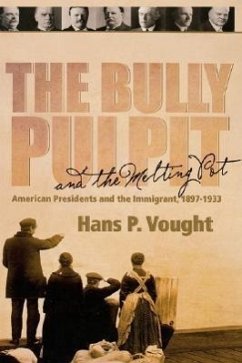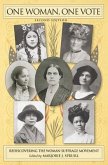Between 1897 and 1933 the presidents of the United States joined progressive reformers in redefining the concept of the United States as a "melting pot." Their use of this metaphor to describe assimilation never meant that immigrants had to completely abandon their ethnic cultures. Instead, they argued that the "melting pot" blended the best of the immigrants" traits and traditions to create a new American "race" united by patriotism and committed to liberal political and economic ideals. While nativists regarded "new" immigrants from southern and eastern Europe as incapable of assimilation, the presidents celebrated immigrant contributions to America and emphasized the need to improve immigrants' lives through education, resettlement away from urban ghettoes, and economic uplift. The president's speeches, letters, and administrative records reveal consistent support for the "melting pot" model as an alternative to nativist racism. While McKinley, Roosevelt, Taft and Wilson supported the exclusion of racial aliens and those with mental or physical illness, they repeatedly praised the "new" immigrants for embracing American ideals while maintaining their ethnic cultures. They argued that everyone should be judged by their moral character rather than their ancestry. World War I raised fears of disloyal aliens that Roosevelt and Wilson heightened by denouncing "hyphenated Americans." Harding, Coolidge, and Hoover continued to use "melting pot" rhetoric, however, rather than endorsing coercive assimilation. The "melting pot" legacy lives on, and still offers a middle ground between the demands for national unity and multiculturalism.
Hinweis: Dieser Artikel kann nur an eine deutsche Lieferadresse ausgeliefert werden.
Hinweis: Dieser Artikel kann nur an eine deutsche Lieferadresse ausgeliefert werden.








